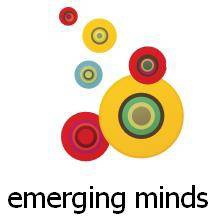What Is Autism?

Autism Spectrum Disorder (ASD) is the term used to refer to a broad range of developmental and behavioural issues.
Children with ASD will often have challenges in the following areas:
- Social skills and social interest. This can include playing with others and understanding appropriate and inappropriate interactions. They may not show much interest in interacting with parents or their family, preferring to focus on toys or a particular game. Some children will become quite upset at any perceived intrusion or interruption.
- Verbal and non-verbal communication. They may have trouble developing language or understanding and using non-verbal skills such as eye contact, facial expressions and pointing.
- Restricted/Repetitive behaviour and interests. They may focus on specific aspects of their toys, such as only playing with the wheels or lining toys up in a specific order. Parents may find it difficult to introduce anything new or to interest them in age-appropriate games and toys. The child may have odd movements, such as hand-flapping or toe-walking, to express excitement.
Autism symptoms can range wildly between individuals, with no two having the same expression. Challenges in communication, learning skills, and social understanding often appear in early childhood and continue throughout the child’s life. With therapy, families can learn how best to support and teach their autistic child and the child can be given the opportunity to learn and grow through the help of specially trained individuals who are experienced in bridging the gap between the neurodiverse and neurotypical experience. We encourage early intervention and treatment which often makes a dramatic difference in both the child’s and the family’s long term success.
While ASD can be a challenge, it is important to understand that it does not signal the end of a happy and productive life for a child. As more and more children are diagnosed and the community becomes more and more aware of both the limitations and advantages, a large number of opportunities are opening up even for those on the more severe end of the spectrum. For those on the milder to more moderate end, there is more acceptance and integration than ever before.
If you are worried about whether or not your child has autism, we encourage you to contact us or your family doctor.


